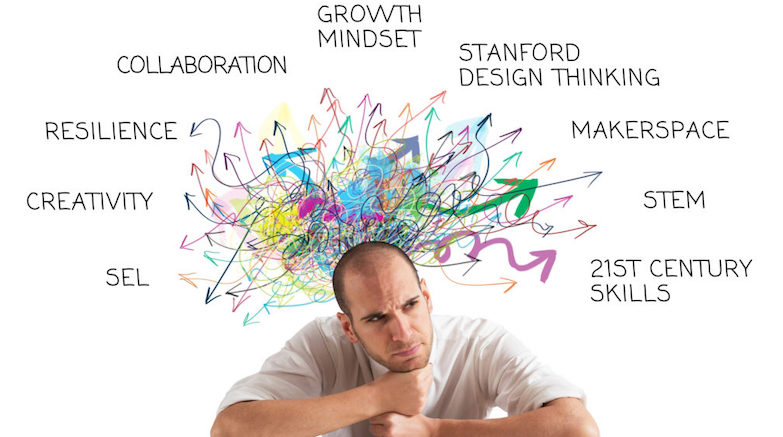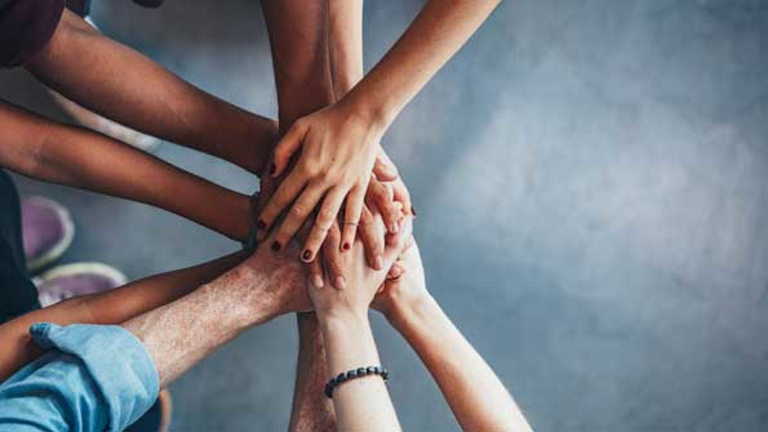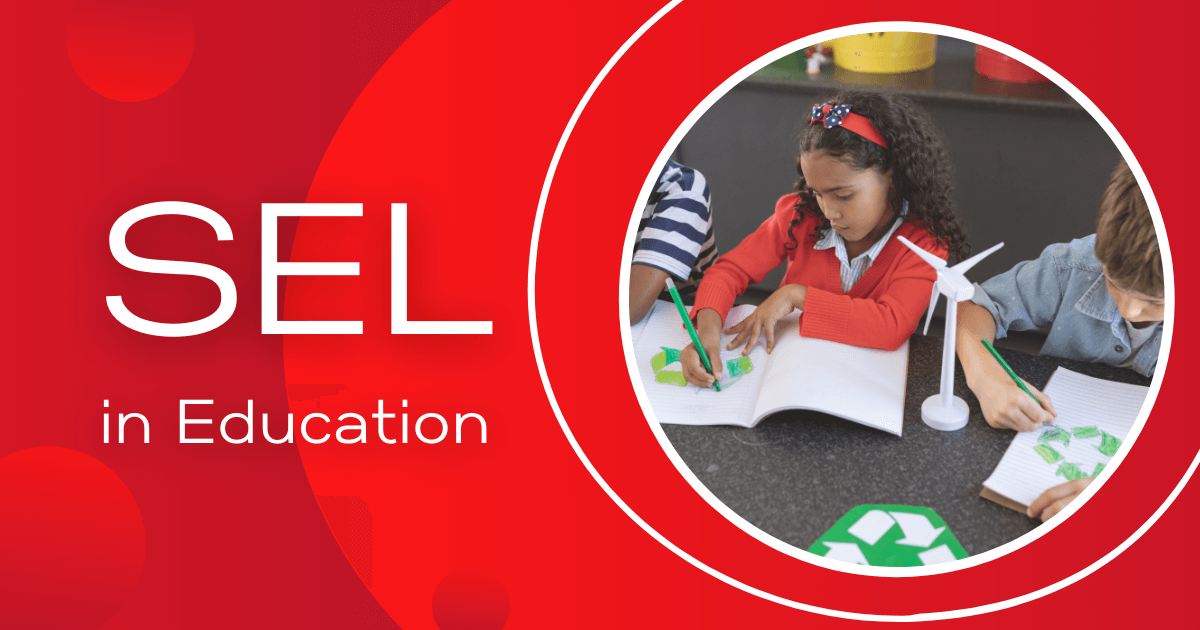The relationship between social-emotional learning and 21st century education continues to evolve. One way that teachers can make the social and emotional aspects of learning reverberate is by using MakerEd tools and technologies. When students' heads, hearts, and hands are simultaneously engaged in hands-on projects—something MakerEd tools help make possible—they can better develop useful SEL skills that legitimately translate to increased readiness for future careers. So, what are some of those skills and how can today's educators bring them to light?
- Self-Efficacy
- Responsible Decision Making
- Self-Awareness
- Self-Management
- Communication
- Goal Setting
- Organization and Teamwork
- Social Awareness
Self-Efficacy
One of the first and most prominent skills students can build through social-emotional learning experiences is self-efficacy. Believing in themselves is crucial for students, since so much of MakerEd (and future careers) involves trial, error, and experimentation. Having confidence in themselves will always be important, and SEL serves as a great way to teach this skill. Also, by ensuring they keep emotions in check, students can more effectively solve problems without fear of failures affecting them.
Having high levels of self-efficacy means students can figure things out on their own. Both the Maker Movement and making in education intrinsically embody this type of problem solving. Maker tools can help kids tinker with different approaches and help them see how their creative processes can impact results. It helps them incorporate the all-important element of confidence in their SEL skills, too.
Responsible Decision Making
As they work through hands-on projects, students constantly make decisions about what they'll try next. Some of these decisions are based on their knowledge, some are based on previous results, and others on their gut. Connecting social-emotional learning to decision making can help students learn the importance of ethically responsible decisions and steer away from abusing the power of technology, for example.
MakerEd helps students see how to make constructive choices that lead to improvements in personal and social behavior. Plus, in the real world, using analytical thinking is super common. Knowing how to break problems down into small pieces can help them separate each of its elements while weighing outcomes.
Self-Awareness
Relationships are also a huge part of 21st century education and a major component in the workplace. So, it's no surprise that students need to be in control of their emotions in order to nurture them. And, for them to be in control, they need to be self-aware. When students can recognize their strengths and weaknesses, they’re better positioned to recognize how these traits can affect various personal relationships. This is key because it's something that can affect their academic (and eventually) their professional successes. Some argue that self-awareness is the most important real-life skill that relates to SEL. Also, educators can teach it to students of all ages. It even helps children internalize their SEL skills while enabling teachers to better align activities with students’ abilities.

Self-Management
Self-management, on the surface, seems to be a valuable SEL skill for any student or professional to build. That is certainly true but combining self-management and social-emotional connections is what can truly impact how kids develop this particular skill. Essentially, self-management entails managing the day-to-day (or hour-to-hour) emotions we have in order to achieve goals. It often involves putting negative emotions on the back burner and utilizing the positive ones effectively. This is important for students since they will face different scenarios in their learning, especially in new areas, like maker education.
They may become frustrated when their making methods don’t work and may yet to have fully embraced the maker mindset of leveraging failure productively. This is a perfect opportunity for educators to remind them that self-management involves controlling their impulsive reactions. It also involves managing stress, maintaining self-discipline, staying motivated, reassessing, refocusing, and staying organized. Remember, makerspace learning can be one of the best ways you can meet students' SEL needs. And, as such, self-management is a key component as they explore and learn on their own.
Communication
It’s no secret that communication is a necessary future skill for students and that SEL can really help them develop it. MakerEd experiences could also help students foster effective communication skills, however. These experiences act as an avenue for students to express themselves when they can’t always effectively do so. Because communicating involves verbal, nonverbal, and listening components, students can easily practice illustrating their thoughts and emotions through their maker projects (among other ways).
Additionally, teachers can highlight communication in SEL by setting aside some time for discussions and encouraging students to share thoughts. This will often shed light on what they’re really thinking, including potential intellectual or social challenges. It can also help students focus on building positive relationships, working in teams, resolving conflicts, and, these days, re-adjusting to social life after remote learning.
Goal Setting
Though their main goal may be completing work as quickly as possible and receiving an acceptable grade, students are constantly challenging themselves—they just might not realize it. Setting goals is an important part of life, allowing us to measure what we do and do not achieve. When it comes to SEL and developing SEL skills, allowing students to set clear goals helps keep them motivated.
Students know (more or less) what they are and are not capable of, so educators should try to reinforce the importance of setting realistic goals and using the tools they have, which includes the maker tools that tie in to SEL. This also helps kids become more self-aware and comfortable with asking for help. Knowing it's okay to seek help in social, emotional, or academic settings is also a valuable SEL skill to have.

Organization and Teamwork
You may think organization is a skill that students can learn within all areas of education, which is certainly true. It does have specific SEL connections as well, however, because unorganized students may use time locating materials or catching up. This adds stress and often creates negative emotions that could result in poorer academic performance or strained social connections. As for teamwork, collaborating can help kids see some of the many different personalities people can have. This helps prepare them for working with all different kinds of people and, from there, they'll often learn how to establish both—you guessed it—social and emotional connections with them.
Social Awareness
Since it does have ‘social’ within its name after all, we’ve saved the social awareness element for last. We all know that empathy is a very valuable trait for people, especially kids, to possess. It allows everyone to see others’ points of view and gain important insights into the decisions they make as well as the reasons for those decisions. In SEL, their social awareness allows students to constantly consider how outcomes affect others in addition to themselves, for example.
Further, when working among kids with diverse backgrounds, empathy towards their traditions, beliefs, and abilities can help advance group productivity. With greater awareness comes a stronger sense of belonging and, ultimately, greater growth, success, and academic achievements.
It’s certainly come on strong in recent years, gaining more fuel with the shift to remote learning, and we see no indication that the popularity and importance of social-emotional learning will slow down. To learn more about it as well as some of the MakerEd tools teachers and students can utilize to expand SEL, check out our SEL resources page or click below to get in touch with us. As always, subscribe to our newsletter to keep up with our latest posts, including more SEL content. And, follow us on Twitter and Instagram for all SEL and general EdTech, STEM, and MakerEd news.





Putting SEL Into Practice
SEL in the Classroom
How Maker Education fits into SEL in the K–12 Classroom
STEAM and SEL in Classrooms: Exploring the Relationship
SEL and Equity: Teaching Today's Students
Let us know if you need any more information!